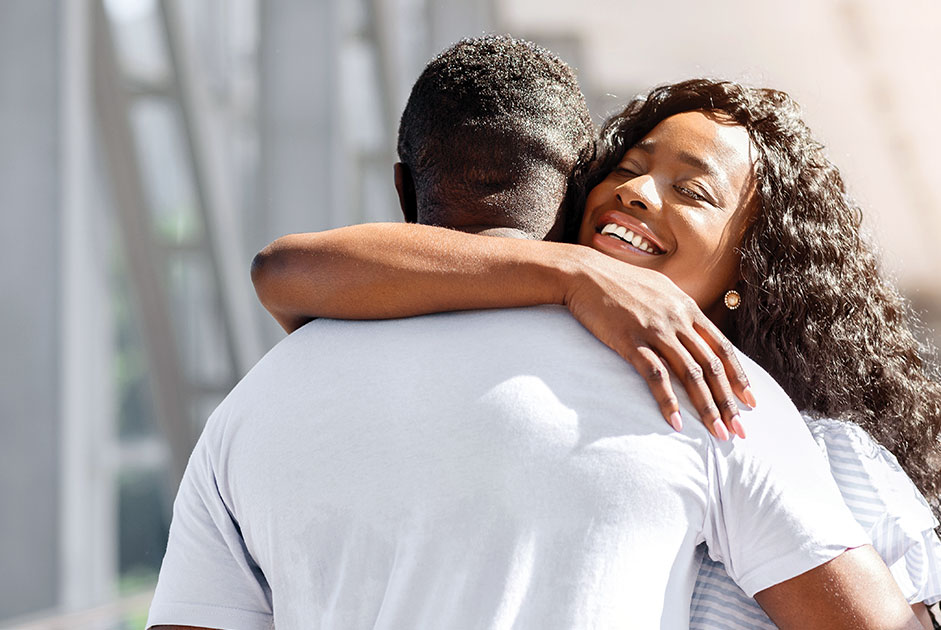BY CAROLYN S PETERSON
The past four months of social distancing have been a hugger’s nightmare. If you are the touchy-feely type and hugging comes as natural to you as breathing, then seeing a friend and staying 6 feet away is painful and so unnatural. But why, of almost everything that I’ve had to stop doing, including getting manicures, do I miss hugging so much? Exactly what does a hug do for the one hugging and the one being hugged? Turns out, quite a lot!
How Does a Hug Deliver So Much, So Simply?
Touch is a powerful means of communication; a hug conveys the message ‘I care for you and am here for you.’ When we hug our bodies release ‘feel-good’ hormones. These hormones include oxytocin, dopamine, and serotonin. Once these hormones are released into our bodies, we experience feelings of happiness, relaxation, improved mood, and lower levels of depression. When the ability to hug and touch is suppressed, like during the past few months, depression and feelings of separation rise. Beyond the good vibes that come with a hug, there are several other reasons to hug.
Pre-COVID Studies Showed Hugs May Protect You Against Illness
In medical studies, researchers found that hugging may reduce the chance a person will get sick (assuming you aren’t in the middle of an international pandemic). It was found that with a greater support system, you are less likely to get sick. And those with the greater support systems who did get sick, had less severe symptoms than those with little to no support.
Hugs May Boost Your Heart Health
In other pre-COVID studies on the effects of hugging and physical touch, reductions in blood pressure levels and heart rate were found. According to these studies, an affectionate relationship, not necessarily sexual in nature, but one involving some sort of touch may be good for your health.
Hugs Can Make You a Happier Person
As mentioned before, hugging releases oxytocin, often called the ‘cuddle hormone,’ because it rises when we touch, hug, or sit close to someone. This hormone is associated with helping to control one’s stress level. Have you ever been so stressed that you break down, then a friend gives you a good, long hug, and oddly some of the feelings of your stressful situation feel as if they are melting away? I know I have many times in my lifetime.
Hugs Are a Way to Communicate with Others
Most of our communication as humans takes place through verbal or facial expressions. But touch is another important way that people can send messages to one another. A sincere, strong handshake, which is not taking place very much these days, can convey feelings of acceptance and trust. A touch on the arm by a friend can instantly give a feeling of support, what many of us need these days. During times of grief, a good hug can mean much more than hearing ‘I’m sorry for your loss.’
Can We Ever Get Too Many Hugs?
Virginia Satir, a family therapist, once said, “We need four hugs a day for survival, eight hugs a day for maintenance, and 12 hugs a day for growth.” You can deduct from that statement that more hugs are better than fewer hugs. Basically, get as many hugs in a day as you can, but if you are low on hugs, I don’t suggest you just go up and hug anyone you meet. That could go wrong quickly.
In today’s society, with so much of our communication done through technology, and the horrors of the coronavirus and social distancing, the good old hug isn’t easy to find. But if you want to feel better about yourself, reduce your stress, improve communication, and be happier and healthier, it seems that giving and asking for more hugs – SAFELY, from those within your family – is a good place to start.





















